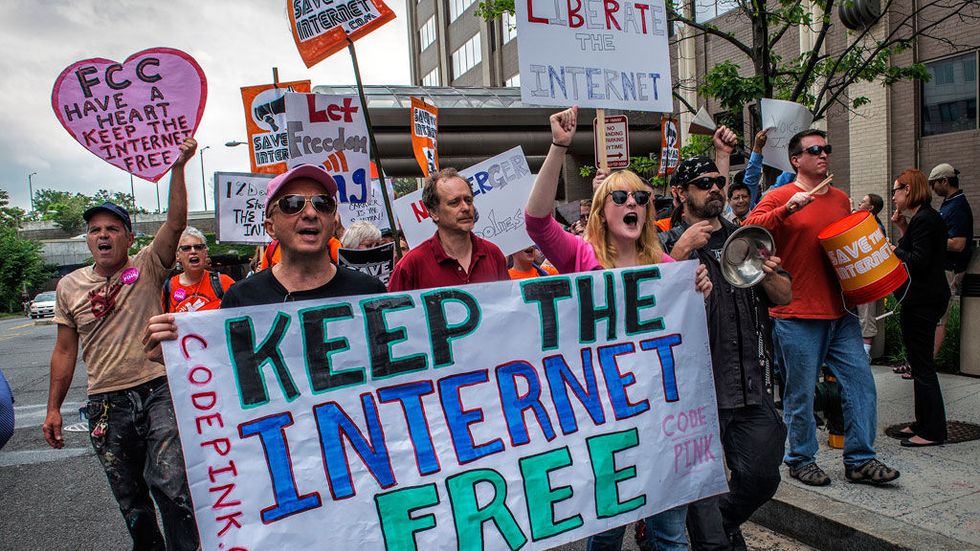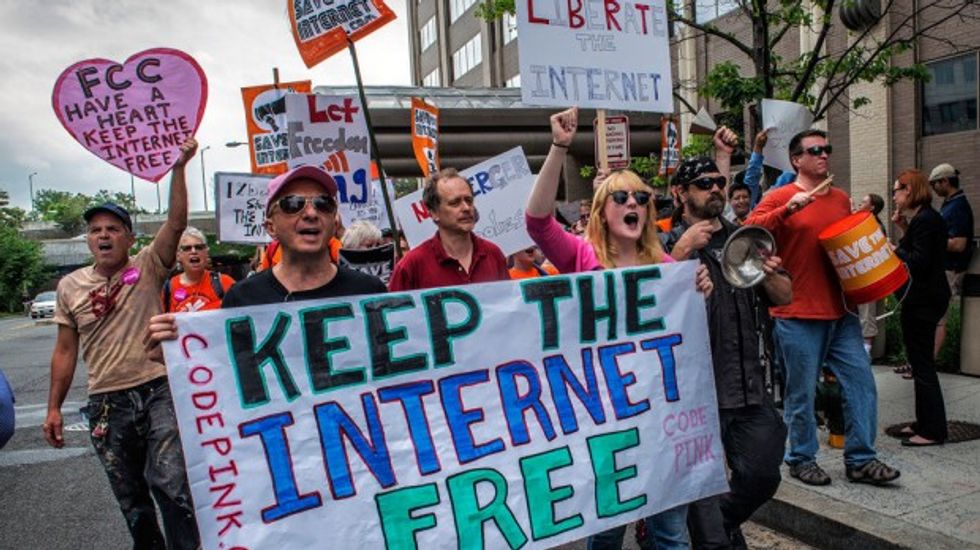
AP Photo

A member of the United States Senate is warning that the new “net neutrality” agenda emanating from the Federal Communications Commission could pose threats to religious, and Christian-specific content on the internet.
And for those Americans who still value their right to freely speak about their religious faith freely without government intrusion, the senator's words should be a call to action.
“Given the assault that we’ve seen on faith, and people of faith, coming from the political left, I think you have to be prepared to fight for religious liberty,” noted U.S. Sen. John Thune (R-S.D.).
[sharequote align="center"]Are Americans of faith engaged, and do they care enough to “fight” for their liberties?[/sharequote]
Thune, who is Chair of the Senate Commerce, Science and Transportation Committee (a Senate committee with direct oversight of the FCC) said that the new federal regulations of the internet represent a dramatic departure from the stance towards internet governance that the previous presidential administrations of Bill Clinton and George W. Bush had assumed.
“Since the early days of the privatization of the internet we’ve used what we call a ‘light touch’ regulatory approach, in which the government sort of stayed out of it. This is at odds with that approach. This will cost consumers, and I believe it will stifle innovation of the internet,” Thune said, while raising the specter of government regulation of religious web content.
While speaking from a unique vantage point, Thune's perceptions and comments on the issue are nonetheless his own. Yet his remarks about an “assault on faith and people of faith coming from the political left” amount to more than partisan political bickering, and are not without merit. The promises that led up to the passage of the federal Obamacare legislation, for example, and the outcomes that the federal law have produced, both serve to substantiate Thune's concerns.
As President Barack Obama and his allies in Congress insisted in previous years that the legislation would bring about higher quality, less expensive, and universally accessible health insurance for all, in early 2010 many pro-life groups began to raise concerns that the Obama administration's agenda could lead to both taxpayer-funded abortions, and employers who provide health insurance to their staffers being forced to provide abortion insurance coverage.

During congressional debate that year, then-U.S. Congressman Bart Stupak (D-Mich.) led a contingency of pro-life Democrats in the U.S. House of Representatives to push for changes to the emerging Obamacare legislation, so as to alleviate the concerns about abortion mandates.
And in the midst of the rancor, President Obama summonsed Stupak to the White House for a meeting, and to make a deal: if Stupak would agree to support the Obamacare legislation as it existed, the -resident would promise to issue an executive order after the bill's passage that would prohibit taxpayer funded abortions.
Stupak, of course, agreed to the president's “deal.” Yet now, five years later, evidence abounds that American taxpayers are indeed subsidizing abortion coverage, while individuals and groups who morally object to aborting unborn children are being forced to go to court to regain their right to not pay for abortion insurance coverage.
Today, the Obama administration is promising a more “open,” more accessible, more “fair” internet via the new net neutrality regulations. Yet there have also recently been both public policy analysts and editorial writers who have suggested that in the future, some of the finer points of historic Christian theology and doctrine will likely be deemed to be “offensive” by the FCC. In turn, it has been predicted that the FCC will eventually harness its new-found powers to restrict or prohibit this religious content from being distributed via the world wide web.
“Whether or not this ends up in that place, I don’t know,” Thune said of these disconcerting claims. “What we do know is that we have now given a federal agency a tremendous amount of power to regulate something that we have thus far regulated very little. This is the reason that people of faith need to be engaged in the political process. The other side is engaged. People of faith need to be paying attention, as well, and engaged with their political leaders.”
But are Americans of faith engaged, and do they care enough to “fight” for their liberties as Thune suggests they must? Or are they content to have “the trust of Stupak,” and allow the president and his administration to have their way?
Time will tell. But given the scarcity of diaolg among faith-based groups about the FCC's new policiies, for now it appears that most prefer the Stupak approach and are ignoring Thune's warnings.
Austin Hill is an Author and Talk Show Host. He can be reached at Austin@AustinsBigWorld.Com
–
TheBlaze contributor channel supports an open discourse on a range of views. The opinions expressed in this channel are solely those of each individual author.